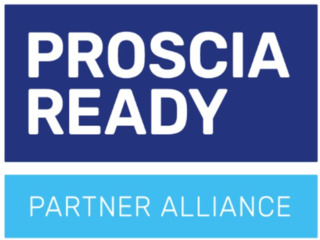 Pathology data informs up to 70% of clinical decisions, serving as a bridge between clinical practice and drug R&D. Each pathology image contains over 1 billion pixels that tell the story of a patient’s disease.
Pathology data informs up to 70% of clinical decisions, serving as a bridge between clinical practice and drug R&D. Each pathology image contains over 1 billion pixels that tell the story of a patient’s disease.
Proscia builds software AI to aid in cancer research, deploying computing, visualization, and machine learning in order to aid pathologists, allowing them to more rapidly and accurately diagnose cancer, as well as other diseases. In February, the company unveiled Proscia Ready, an alliance of solution providers committed to helping life sciences organizations and diagnostic laboratories accelerate the adoption of digital pathology.
Now Proscia Ready has a new partner, announcing this week that Pramana, an AI-enabled health tech company modernizing the pathology sector, has joined alongside scanner company Hamamatsu; AI developers Ibex, Visiopharm, Mindpeak, DoMore Diagnostics, and Stratipath; infrastructure provider Dell Technologies; and monitoring company Barco.
Founded in 2022, the Cambridge, Massachusetts-based Pramana takes a software-first approach to whole slide images (WSI), leveraging proprietary technology, including intelligent scanning hardware, automated in-line quality control, and standards-based output. It eliminates the need for post-processing QA/QC, enriches WSIs with additional data, and supports algorithm development and deployment.
The company’s typical customers are health centers and reference labs. For example, a use case might involve prospective digital sign-out to massive digitization of millions of archives, enabling researchers to accelerate their drug discovery and develop decision-support algorithms for accurate screening and diagnosis.
“Pramana was founded to address challenges in digital pathology, including the need for better integration, standardization, and quality in pathology data. We saw an opportunity to build an automated solution that could provide high-quality, standardized WSIs to empower pathologists and enhance research and diagnosis efficiency,” Mike Koenig, Chief Business Officer at Pramana, told VatorNews.
“Our goal is to give confidence to the clinicians with the same fine focus they experience with their microscopes and reducing total cost of ownership for the entire pathology value chain.”
The company currently has partnerships with healthcare organizations like Mayo Clinic and Duke Health, as well as a multi-year agreement with Caris Life Sciences to transform their clinical lab with improved workflow by digitizing approximately 1.5 million slides a year.
Through the use of Pramana, total time to diagnosis or total time to successful scan has been reduced by 20 to 40% in certain scenarios.
Proscia’s platform, called Concentriq, allows diagnostic laboratories and life sciences companies to ingest, view, manage, and analyze images of tissue biopsies to power their data-driven pathology practice.
The company decided to launch Proscia Ready when it found that practices weren’t getting the full use out of digital pathology technology, David West, co-founder and CEO of Proscia, told VatorNews.
“We have long recognized that organizations must integrate a broad portfolio of hardware and software solutions to grow their use of digital pathology and implement AI. This is why we’ve designed our Concentriq enterprise pathology platform, which is software that sits at the foundation of life sciences organizations’ and diagnostic laboratories’ routine operations, to be open and interoperable since its earliest days,” he said.
“In speaking with our customers and partners, it also became clear that realizing the full promise of these technologies was easier said than done. Beyond any challenges with integration, laboratories may face a lack of certainty in their selections, limited investment protection, and the added overhead that comes from working with multiple vendors.”
As a Proscia Ready partner, Pramana will help life sciences organizations and diagnostic laboratories leverage enriched, high-quality data, including DICOM images, in their research and clinical operations.
The two companies met through their joint pathology clients where they saw the benefit of Proscia and Pramana working more closely together, said Koenig, noting that the decision to join Proscia Ready was an easy one as the two companies share a vision to transform diagnostic and research pathology to realize the promise of precision medicine.
“Joining Proscia Ready enables us to integrate with Proscia’s Concentriq platform, enhancing both platforms’ digital pathology capabilities. Together, we are collaborating with other organizations to speed up research and diagnosis efficiency. Such partnerships provide further confidence to clients that a fully integrated solution will not only be the lowest cost of ownership, but any future operational issues will be handled efficiently and effectively,” he explained.
“The combination of Pramana and Proscia’s advanced and innovative platforms will help to transform both diagnostic and research pathology, which is critical to realizing the promise of precision medicine.”
For West, Pramana was a good fit for Proscia Ready because the company shares the existing partners’ dedication to helping customers realize the full promise of digital pathology, while the Pramana team recognizes that digital pathology adoption requires more than joint product integration.
“To understand the additional value that Pramana offers to Proscia Ready, keep in mind that digital pathology shifts the standard from microscope to image. Pramana brings a unique approach to slide scanning, or the process of creating images, that centers around automation, quality, scale, and standardization by way of a format called DICOM,” he said.
“This results in its scanners enabling customers to rapidly generate images with added potential. Unsurprisingly, Pramana has seen a lot of traction in the market, and we are excited to welcome them to Proscia Ready.”
This partnership also will mean integrating Pramana’s SpectralHT family of scanners with the Concentriq enterprise pathology platform, where Concentriq will serve as the foundation for both life organizations’ and diagnostic laboratories’ routine pathology operations, and Pramana’s scanners will generate the data to fuel these operations.
With Proscia’s software supporting Pramana’s scanners, pathologists will be able to deliver faster diagnoses when working with high quality images since poor quality images must be rescanned.
“Pramana will provide high-quality images and standardized data, improving diagnostic accuracy and research capabilities. Our technology facilitates efficient and accurate WSI and data generation, which is crucial for pathology research and diagnostics,” said Koenig.
“There will be lab operation benefits and enhancements for pathologists and technicians, including exposing deeper data to improve diagnoses. Additionally, it assures lab operations that the end-to-end workflow will reduce problems and increase the speed to value.”
For Proscia, the partnership with Pramana will help with its commitment to aid its customers elevate the role of pathology in the precision medicine paradigm.
“Our Concentriq platform serves as a singular foundation for both research and diagnostic pathology, uniquely bridging the gap between the diagnostic laboratories creating data and the life sciences organizations that can tap into it to fuel innovation. We are already seeing a flywheel effect emerge as advancements from the life sciences increasingly translate into the clinic, generating even more pathology data to inform the next wave of breakthroughs,” said West.
“As the pace of precision medicine innovation continues to accelerate, we anticipate that the opportunity for pathology data will become even more significant and look forward to helping our customers capitalize on it to improve patient care.”
At the same time, this partnership allows Pramana to continue it commitment to digital pathology, which is part of a bigger vision to accelerate the adoption of digital practices and scale operations around the world.
“Our ultimate goal is to make digital adoption in pathology seamless and effective. Success is defined by the widespread adoption of our solutions and world-changing contributions to pathology research and diagnostics,” said Koenig.

















